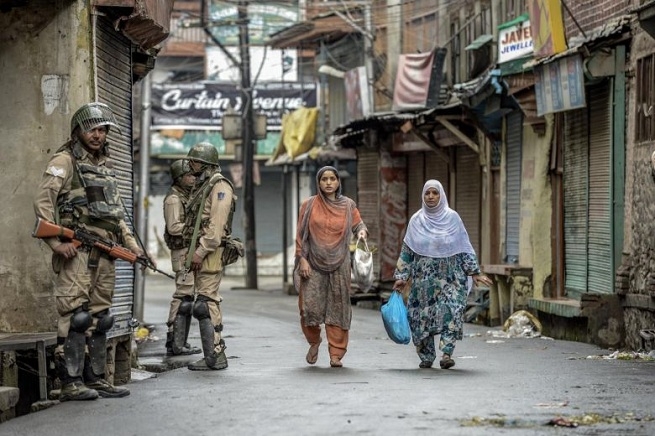good action
| Date :15-Oct-2020 |

THE proactive policing and security operations in Kashmir in the last few months have proved beyond doubt how it is possible to counter terrorism effectively with right intent and and right action. The security forces are able to stop infiltration of terrorists and arms and ammunition into the Indian territory and have succeeded in eliminating or capturing hundreds of ultras.
They also have blocked successfully various clandestine channels that the terrorists operate to enter India -- like underground tunnels, for example -- on several occasions in the past some months. These successful operations have become possible because of the changed conditions in Kashmir -- like abrogation of Special Status by scrapping Articles 370 and 35A of the Constitution of India. No matter the noise some Kashmiri politicians are making about that, it is obvious that the changes in the administrative structure of the region -- like formation of two Union Territories -- and better implementation of the security plan under the new canopy of power have brought about a favourable change in Kashmir, much to the delight of average Indian people.
The biggest hurdle in implementation of a professionally-drawn security plan was the administrative set up that was geared to help separatism and terrorism in the erstwhile State of Jammu and Kashmir. Under the cover of Special Status, the administration as well as political leadership often supported separatist camp in an organised manner, so much so that the common people of Kashmir got an impression that they were destined to live under the scourge of terrorism all their lives. The economy had come to a standstill and educational and cultural activity had become forgotten matters. All this changed dramatically once the Special Status was withdrawn from Kashmir and the region came to be integrated with the rest of India in the most natural manner.
With all Central laws now applicable, the administration, too, has undergone a positive change, in the process helping the process of combating separatism and terrorism more effectively. All these abstract changes are showing a good effect in the fight against cross-border terrorism sponsored by Pakistan. That also explains how the security forces have been able to eliminate and nab so many terrorists in the past few months. It is, of course, true that in the fight against separatism and terrorism claimed the lives of a few of India’s brave-hearts. But that is part of the price the nation must pay trying to protect and preserve its unity, integrity and sovereignty. However, the Indian nation does not mind paying this price. In fact, for long years, the people of India had been asking for brave, real-time action against separatism and terrorism in Kashmir -- which was not happening.
Now that the Special Status has been abrogated, things have begun flowing naturally and a comprehensive security plan has been pressed into service. Previously, none of this was possible as the political and administrative lobbies stopped any kind of nationalistic action either directly or indirectly. In doing so, they often colluded with foreign powers and made Kashmir looked like a region that could slip out of India’s hand at any moment. Those were the days when even people in Armed Forces worried about Kashmir beyond normal levels. everybody was given to suspect that the region was almost lost to India on a permanent basis.
The region’s political machinery also gave that impression -- by playing people’s emotion of fear by pushing an anti-India narrative sponsored by Pakistan and a few other forces. And now, the administration of the Union Territory of Jammu and Kashmir is attacking exactly those tendencies effectively. This is the difference between Kashmir of today and the Kashmir of yesterday. Today, elimination of separatists and terrorist has become routine matter, which was never the case previously. It is in this area where the good effect of the abrogation of Special Status is visible in the most pronounced manner.